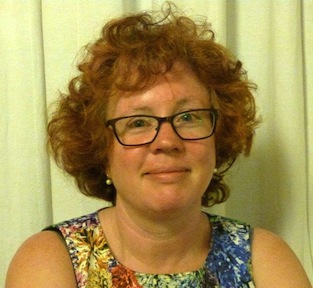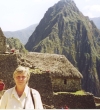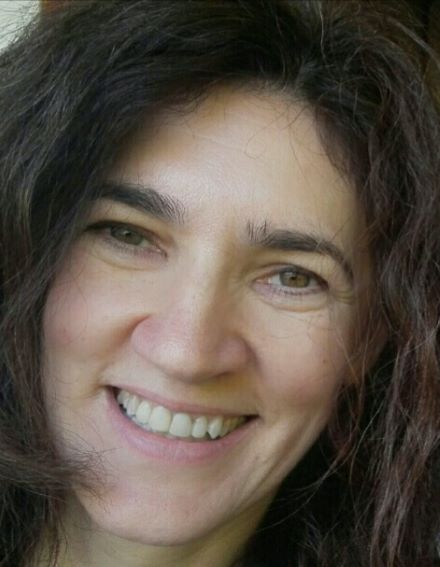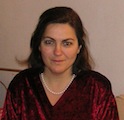Studying at the University of Verona
Here you can find information on the organisational aspects of the Programme, lecture timetables, learning activities and useful contact details for your time at the University, from enrolment to graduation.
Academic calendar
The academic calendar shows the deadlines and scheduled events that are relevant to students, teaching and technical-administrative staff of the University. Public holidays and University closures are also indicated. The academic year normally begins on 1 October each year and ends on 30 September of the following year.
Course calendar
The Academic Calendar sets out the degree programme lecture and exam timetables, as well as the relevant university closure dates..
| Period | From | To |
|---|---|---|
| I semestre | Oct 1, 2008 | Jan 17, 2009 |
| II semestre | Mar 2, 2009 | May 30, 2009 |
| Session | From | To |
|---|---|---|
| Sessione esami invernale | Jan 19, 2009 | Feb 28, 2009 |
| Sessione esami estiva | Jun 3, 2009 | Jul 11, 2009 |
| Sessione esami autunnale | Sep 1, 2009 | Sep 30, 2009 |
| Session | From | To |
|---|---|---|
| Sessione lauree autunnale | Nov 24, 2008 | Nov 28, 2008 |
| Sessione lauree invernale | Apr 15, 2009 | Apr 18, 2009 |
| Sessione lauree estiva | Jul 13, 2009 | Jul 17, 2009 |
| Period | From | To |
|---|---|---|
| Festa di Ognissanti | Nov 1, 2008 | Nov 1, 2008 |
| Festa dell'Immacolata Concezione | Dec 8, 2008 | Dec 8, 2008 |
| Vacanze di Natale | Dec 22, 2008 | Jan 6, 2009 |
| Vacanze di Pasqua | Apr 6, 2009 | Apr 14, 2009 |
| Festa della Liberazione | Apr 25, 2009 | Apr 25, 2009 |
| Festa del Lavoro | May 1, 2009 | May 1, 2009 |
| Festa del Santo Patrono | May 21, 2009 | May 21, 2009 |
| Festa della Repubblica | Jun 2, 2009 | Jun 2, 2009 |
| Vacanze estive | Jul 20, 2009 | Aug 31, 2009 |
| Description | Period | From | To |
|---|---|---|---|
| I semestre | I semestre | Oct 1, 2008 | Jan 17, 2009 |
| II semestre | II semestre | Mar 2, 2009 | May 30, 2009 |
Exam calendar
Exam dates and rounds are managed by the relevant Foreign Languages and Literatures Teaching and Student Services Unit.
To view all the exam sessions available, please use the Exam dashboard on ESSE3.
If you forgot your login details or have problems logging in, please contact the relevant IT HelpDesk, or check the login details recovery web page.
Should you have any doubts or questions, please check the Enrollment FAQs
Academic staff
Cerrito Stefania
 stefania.cerrito@univr.it
stefania.cerrito@univr.it
 cecilia.grana@univr.it
cecilia.grana@univr.it

Locher Elmar
 elmar.locher@univr.it
elmar.locher@univr.it
 +39 045802 8311
+39 045802 8311
Longhi Silvia
 silvia.longhi@univr.it
silvia.longhi@univr.it
 +39 045802 8329
+39 045802 8329
Tarozzi Bianca Grazia
 bianca.tarozzi@univr.it
bianca.tarozzi@univr.it
 +39 045 802 8467
+39 045 802 8467
 francesco.vecchiato@univr.it
francesco.vecchiato@univr.it
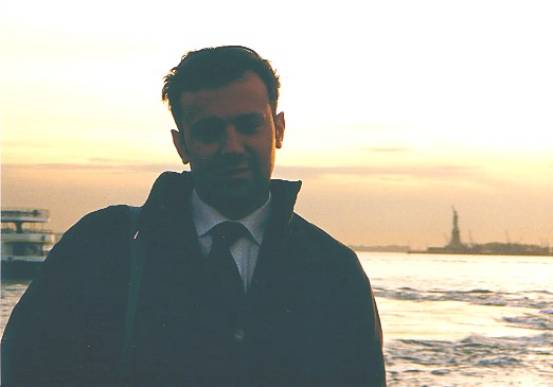
Zaccarello Michelangelo
 michelangelo.zaccarello@univr.it
michelangelo.zaccarello@univr.it
 +39 045 802 8330
+39 045 802 8330
Study Plan
The Study Plan includes all modules, teaching and learning activities that each student will need to undertake during their time at the University.
Please select your Study Plan based on your enrollment year.
1° Year
| Modules | Credits | TAF | SSD |
|---|
CI2 Seconda letteratura straniera Anno ICI6 Seconda lingua straniera Anno ICI1 Prima letteratura straniera Anno ICI5 Prima lingua straniera Anno I2° Year activated in the A.Y. 2009/2010
| Modules | Credits | TAF | SSD |
|---|
CI3 Prima letteratura straniera o materia d'area Anno IICI4 Seconda letteratura straniera o materia d'area Anno IICI7 Prima lingua straniera Anno IICI8 Seconda lingua straniera Anno II3° Year activated in the A.Y. 2010/2011
| Modules | Credits | TAF | SSD |
|---|
CI9 Prima lingua straniera Anno IIICI10 Seconda lingua straniera Anno III| Modules | Credits | TAF | SSD |
|---|
CI2 Seconda letteratura straniera Anno ICI6 Seconda lingua straniera Anno ICI1 Prima letteratura straniera Anno ICI5 Prima lingua straniera Anno I| Modules | Credits | TAF | SSD |
|---|
CI3 Prima letteratura straniera o materia d'area Anno IICI4 Seconda letteratura straniera o materia d'area Anno IICI7 Prima lingua straniera Anno IICI8 Seconda lingua straniera Anno II| Modules | Credits | TAF | SSD |
|---|
CI9 Prima lingua straniera Anno IIICI10 Seconda lingua straniera Anno IIILegend | Type of training activity (TTA)
TAF (Type of Educational Activity) All courses and activities are classified into different types of educational activities, indicated by a letter.
Spanish Literature II [CInt] (2009/2010)
Teaching code
4S00843
Teacher
Credits
9
Language
Italian
Scientific Disciplinary Sector (SSD)
L-LIN/05 - SPANISH LITERATURE
Period
I semestre dal Oct 1, 2009 al Jan 16, 2010.
Location
VERONA
Learning outcomes
The course intends to introduce students to Spanish culture and literature in Renaissance times and to approach readings of the Don Quijote by Miguel de Cervantes will be undertaken.
Program
The first part of course will concern the Renaissance Spanish civilization and literature, studing the interactions between minority and majority culture in Spanish the Golden Age.
A guided reading commentary of the Don Quijote by Miguel de Cervantes will be undertaken in the second part of course.
BIBLIOGRAFIA OBBLIGATORIA
- Alle radici dell’Europa. Mori, giudei e zingari nei paesi del Mediterraneo occidentale (Volume II: secoli XVII-XIX), a cura di F. Gambin, Firenze, Seid, 2009.
- Antología comentada de la literatura española. Historia y textos. Siglo XVI, a cura di Andrés Amorós, Madrid, Castalia, 2007 (le parti da studiare a fondo saranno segnalate durante il corso).
- M. de Cervantes, Don Quijote de la Mancha, ed. di L. A. Murillo, Madrid, Castalia, 2 voll. (è vivamente consigliata la lettura del testo prima dell’inizio del corso).
- M. Socrate, Il riso maggiore di Cervantes. Le opere e i tempi, Firenze, la Nuova Italia, 1998, soprattutto pp. 1-37 e pp. 55-128.
LETTURE DI APPROFONDIMENTO:
- C. Samonà, G. Mancini, F. Guazzelli, A. Martinengo, La letteratura spagnola. I secoli d’oro, Milano, Biblioteca Universale Rizzoli.
- M. G. Profeti, a cura di, L’età d’oro della letteratura spagnola: Il Cinquecento, Firenze, La Nuova Italia, 1997.
- J. H. Elliott, La Spagna imperiale. 1469-1716, Bologna, Il Mulino, 2006.
- H. Rawlings, L’inquisizione spagnola, Bologna, Il Mulino, 2008.
- AA. VV., De Cervantes y el islam, ed. di N. Martínez de Castilla e R. G. Benumeya Grimau, Madrid, Sociedad Estatal de Conmemoraciones Culturales, 2006.
Examination Methods
The examination consists in a oral test in Italian language and it also provides a check of the understanding degree of the Spanish texts (reading and translation). The optional execution of the whole test in Spanish language will be a good remark in the overall evaluation.
The students attending the classes are going to stand a written test in itinere about the basic course. The outlined programm is in force also for the no-attending students, who are kindly requested to get in touch with the teacher.
Type D and Type F activities
To discover all the teaching activities accredited by the foreign teaching college click here
Career prospects
Module/Programme news
News for students
There you will find information, resources and services useful during your time at the University (Student’s exam record, your study plan on ESSE3, Distance Learning courses, university email account, office forms, administrative procedures, etc.). You can log into MyUnivr with your GIA login details: only in this way will you be able to receive notification of all the notices from your teachers and your secretariat via email and soon also via the Univr app.
Student login and resources
Gestione carriere
Assegnazione tutore
Attività accreditate D/F
Calendario didattico dettagliato
Cambio lingua curriculare
Competenze informatiche
Competenze linguistiche (prima e seconda lingua)
Competenze linguistiche in triennale (terza lingua CFU F)
Compilazione del piano didattico
Corso di Lingua portoghese
Erasmus+ e altre esperienze all'estero
Linguistic training CLA
Presentazione dei corsi di studio e Open day
Graduation
List of theses and work experience proposals
| Stage | Research area |
|---|---|
| PROGETTO MAMBRINO Stage per bibliografia | Various topics |
Saperi minimi
Stage e tirocini
Nel piano didattico della laurea triennale in Lingue per il turismo e il commercio internazionale (L12) è previsto un periodo di stage obbligatorio (CFU 6) in organizzazioni imprenditoriali.
Le attività di stage sono finalizzate a far acquisire allo studente una conoscenza diretta in settori di particolare interesse per l’inserimento nel mondo del lavoro e per l’acquisizione di abilità professionali specifiche.
Le attività di stage sono svolte sotto la diretta responsabilità di un singolo docente presso studi professionali, enti della pubblica amministrazione, aziende accreditate dall’Ateneo veronese.
I crediti maturati in seguito ad attività di stage saranno attribuiti secondo quanto disposto nel dettaglio dal “Regolamento d’Ateneo per il riconoscimento dei crediti maturati negli stage universitari” vigente.
- Tutte le informazioni in merito agli stage per futuri studenti sono disponibili alla pagina Stage e tirocini.
- Tutte le informazioni in merito agli stage per studenti iscritti sono pubblicate in MyUnivr - come fare per - stage e tirocini.
- Tutte le informazioni in merito agli stage per le aziende sono disponili alla pagina Stage e tirocini per azienze.
Ulteriori informazioni al seguente link https://www.univr.it/it/i-nostri-servizi/gestione-carriere-studenti-lingue-e-letterature-straniere/stage-e-tirocini-lingue-e-letterature-straniere
